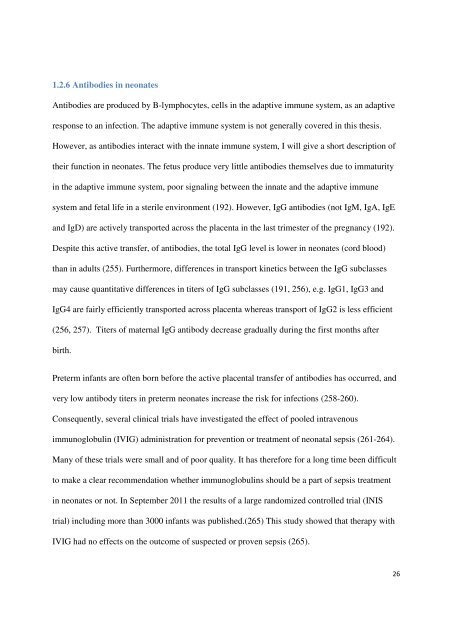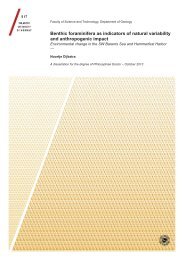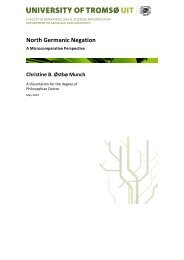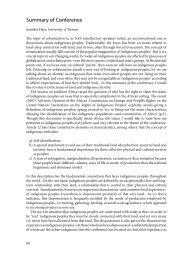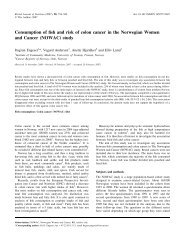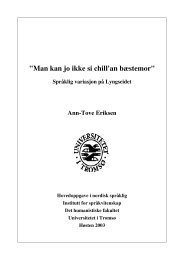Staphylococcus epidermidis - virulence factors and innate ... - Munin
Staphylococcus epidermidis - virulence factors and innate ... - Munin
Staphylococcus epidermidis - virulence factors and innate ... - Munin
Create successful ePaper yourself
Turn your PDF publications into a flip-book with our unique Google optimized e-Paper software.
1.2.6 Antibodies in neonates<br />
Antibodies are produced by B-lymphocytes, cells in the adaptive immune system, as an adaptive<br />
response to an infection. The adaptive immune system is not generally covered in this thesis.<br />
However, as antibodies interact with the <strong>innate</strong> immune system, I will give a short description of<br />
their function in neonates. The fetus produce very little antibodies themselves due to immaturity<br />
in the adaptive immune system, poor signaling between the <strong>innate</strong> <strong>and</strong> the adaptive immune<br />
system <strong>and</strong> fetal life in a sterile environment (192). However, IgG antibodies (not IgM, IgA, IgE<br />
<strong>and</strong> IgD) are actively transported across the placenta in the last trimester of the pregnancy (192).<br />
Despite this active transfer, of antibodies, the total IgG level is lower in neonates (cord blood)<br />
than in adults (255). Furthermore, differences in transport kinetics between the IgG subclasses<br />
may cause quantitative differences in titers of IgG subclasses (191, 256), e.g. IgG1, IgG3 <strong>and</strong><br />
IgG4 are fairly efficiently transported across placenta whereas transport of IgG2 is less efficient<br />
(256, 257). Titers of maternal IgG antibody decrease gradually during the first months after<br />
birth.<br />
Preterm infants are often born before the active placental transfer of antibodies has occurred, <strong>and</strong><br />
very low antibody titers in preterm neonates increase the risk for infections (258-260).<br />
Consequently, several clinical trials have investigated the effect of pooled intravenous<br />
immunoglobulin (IVIG) administration for prevention or treatment of neonatal sepsis (261-264).<br />
Many of these trials were small <strong>and</strong> of poor quality. It has therefore for a long time been difficult<br />
to make a clear recommendation whether immunoglobulins should be a part of sepsis treatment<br />
in neonates or not. In September 2011 the results of a large r<strong>and</strong>omized controlled trial (INIS<br />
trial) including more than 3000 infants was published.(265) This study showed that therapy with<br />
IVIG had no effects on the outcome of suspected or proven sepsis (265).<br />
26


